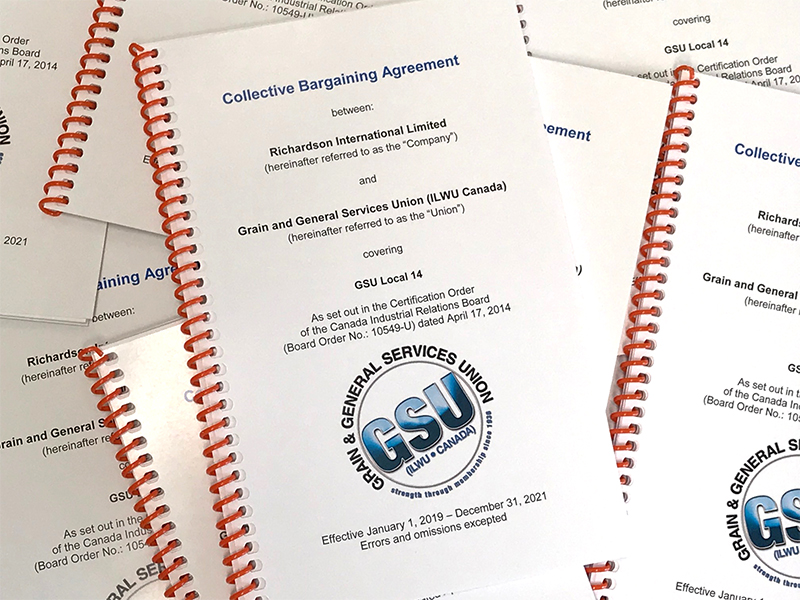THE GIG LIFE INCLUDES A UNION.
Workers at Goodlife Fitness are proving it.
By: Canadian Labour Institute
There are more than 12,000 of them. They work as group fitness instructors and personal trainers in more than 300 Goodlife locations from coast to coast. They have already won a $7.5 million class action lawsuit to collect back pay from Goodlife. Their union drive continues to build momentum.
Tanya Ferguson is a union organizer with Workers United Canada Council (WUCC). She recalls it wasn’t hard to connect with Goodlife workers. “At the first union meeting a broken elevator had instructors carrying their bikes up 10 flights of stairs. They wanted to see something happen and were willing to do something about it.”
Workers United is the first union in North America to represent fitness workers. Over 600 GoodLife Fitness personal trainers in Toronto, Ajax, and Peterborough have joined the union. Group fitness instructors are slower to join in. However, union density has reached 25% and workers are seeing the benefits.
Paying for the privilege of working
I spoke to Michelle,* a Goodlife yoga instructor, who was not part of the union organizing, but she agreed Goodlife was not always a good boss.
As a yoga teacher with Goodlife, even though she is a certified teacher through the Yoga Alliance, she was not allowed to give private lessons or give yoga lessons anywhere else—including churches and community centres.
“I didn’t get my training from Goodlife. For them to tell me where I can and can’t work was bullshit. I would do it under different names, I would say to yoga studios don’t put me on your website if I’m subbing for a class.”
Michelle says that yoga teachers who got their certification through Goodlife or the associated company Canfitpro were ironically less respected and paid less than people with training through independent yoga studios.
Workers were constantly under pressure to upgrade. She said: “basically if you wanna do those classes you have to be tested on it and you get trained on it and you have to pay them quarterly. You have to pay them to get the new quarterly routine. So basically they got you constantly paying them money to teach there”.
“To make a living out of it you’d basically have to be a personal trainer. If you are personal trainer you can get 40 hours a week and get benefits, but they never give you 40 hours a week.”
Just working for the fun of it
Workers United organizer Ferguson says that this kind of company manipulation and control is common for Goodlife workers. The company even becomes a predatory lender.
“Goodlife basically had a model where people worked for free to build up a client base. They were often living with no money during that time, or having to opt into a company scheme that was a lot like borrowing money from your employer.
“If you were paid during that time, GoodLife would deduct those earnings from your commission once you had a client base.”
This kind of thing is typical of the gig economy, where companies casualize their workers in order to avoid their employment responsibilities. At Goodlife workers were encouraged to see themselves as part of a “company culture” and as “team players” and Goodlife members, rather than as employees working for a huge money-making private enterprise.
Adrie Naylor is also an organizer with Workers United. She says the union drive surprised Goodlife: “I don’t think it had ever occurred to the company that their workers would ever unionize. Many workers are often quite young. Many people had never been in a union, nor had it occurred to them that they would be or even could be. It was a pretty interesting campaign to be a part of.”
Workers win class action
The Goodlife workers, especially the personal trainers, launched a class action lawsuit against Goodlife in 2015. Some 22,000 current and former employees were included in the action. The workers won a $7.5 million settlement in June 2018.
Squeezed between the union drive and the lawsuit Goodlife did eventually change some of its practices: such as, paying personal trainers for time spent booking and scheduling clients, removing barriers to overtime, and generally having to admit that their employees are indeed workers, subject to employment law.
Tanya Ferguson says,“What’s really rich is that the company was really breaking the law previously. They are trying to manipulate people into thinking that they are part of a movement, rather than workers in a big business—which is really something that someone owns and is making millions from.
“People do love their jobs at Goodlife and they love what they do. Everybody can see the company growing, but it is really at the expense of the workers.”
Adrie Naylor noted that one of the major demands at the bargaining table was dealing with sick leave and workplace injuries. Workers who work in gyms and spas are, for some reason, exempt from WSIB, so they didn’t even have that limited coverage for injuries. She said that workers felt subject to “the whims of their management.”
Naylor adds that “Management had these slogans that they saw as individual like “build your business” and “change your story”. Then the workers took these sentiments and expressed them in solidarity.”
The ‘gig culture’ still appeals
Michelle is grateful for the small improvements in conditions over the past few years, but she still sees the benefits of her gig economy lifestyle: “For me its nice having one major job and having a side job for having fun. So right now I’m doing a contract job with the city and I’m teaching the yoga classes for extra money. But I’m finding a sub for the yoga classes.
“I don’t think I ever want to let go of Goodlife, one because you get free membership if you teach two classes a week. I will always be attached to Goodlife in some way. But they’re not my life. It’s there as a convenience for me.”
Ferguson says that “Most people came at this because they actually love what they did. The people who formed the first union committee were overwhelmingly people who actually loved Goodlife, but they didn’t love the way the company was going. This was a way to have a critique and actually give it some teeth.
This article was originally published by The Canadian Labour Institute: http://www.canadianlabourinstitute.org/story/no-dumbells
Reprinted with permission as a member of CALM.










